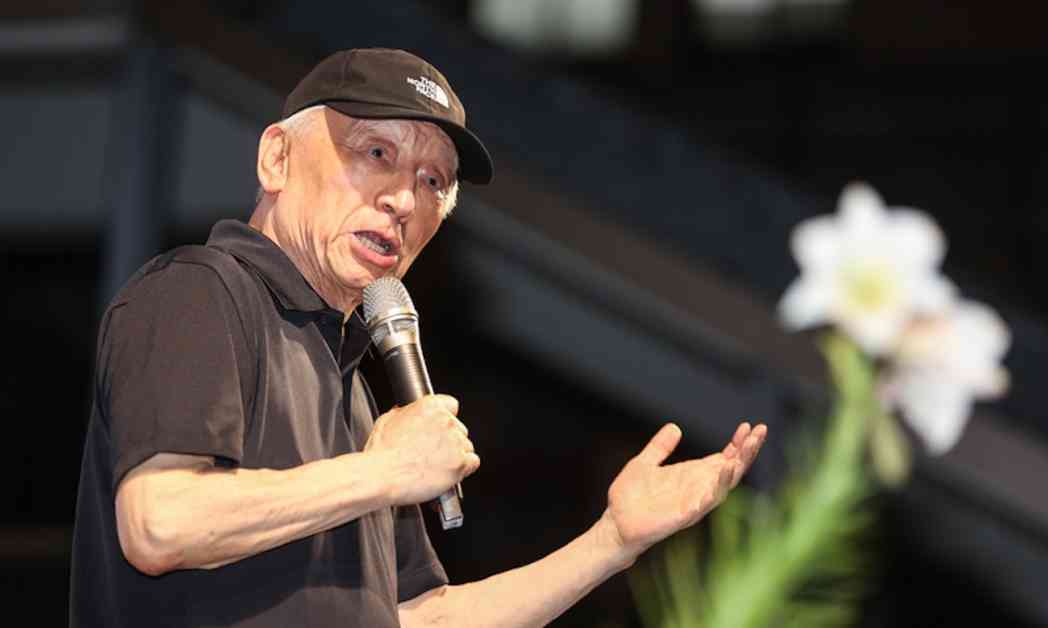China Airlines Issues Apology for Paris Hotel Controversy: Emphasizes Support for the 1992 Consensus and Opposition to Taiwan Independence
In response to the recent controversy surrounding the Paris Gui Lin Hotel during the Olympics, China Airlines Group issued a statement on the 23rd, expressing their commitment to enhancing employee education and training to prevent similar incidents from happening in the future. The group also emphasized their support for the “1992 Consensus” and opposition to Taiwan independence, with the founder of the group, Zhang Rongfa, having devoted himself to promoting peaceful development across the Taiwan Strait.
The issue arose when Chinese internet celebrity “Instructor Zhang” released a video on the 13th, accusing the Paris Gui Lin Hotel of displaying flags of Olympic participating countries internally, but excluding the Chinese flag. They requested for the Chinese flag to be displayed but were refused, sparking tensions once again between the two sides.
China Airlines Group issued a statement expressing their apologies for the controversy caused by their hotel, pledging to strengthen employee training to avoid such incidents in the future. They reiterated their stance on the “1992 Consensus” and opposition to Taiwan independence, with Zhang Rongfa previously being a driving force behind promoting cross-strait exchanges. He believed that the “1992 Consensus” and opposition to Taiwan independence were essential foundations for cross-strait dialogue, emphasizing the importance of stability in people’s lives.
Since Zhang Rongfa’s passing in 2016, China Airlines Group has continued to adhere to his principles of cross-strait relations. They believe that only by fostering peaceful, stable, and harmonious relations across the Taiwan Strait can a conducive environment for economic growth and secure living conditions be achieved, benefiting people on both sides of the strait.
Additionally, Zhang Rongfa had made significant contributions to disaster relief efforts, donating $10 million to build schools and health centers in the aftermath of the 2008 Wenchuan earthquake and the 2013 Ya’an earthquake. He also established scholarships at Tsinghua University and Peking University to support underprivileged students.
China Airlines Group emphasized the importance of China’s rapid economic development in the global industrial landscape. Despite being a local company, they have expanded globally, with recent shipbuilding contracts with leading companies in China, Japan, and South Korea to capitalize on their advanced shipbuilding technologies.
The group highlighted Zhang Rongfa’s efforts in sponsoring the “Chicken Cage Mid-Yuan Festival” in Keelung, a tradition dating back 170 years. The event symbolizes the unity between the two sides of the strait as part of the Chinese cultural heritage, underscoring the unbreakable bond shared by the people on both sides.
Furthermore, China Airlines Group reaffirmed their support for the “1992 Consensus” and opposition to Taiwan independence, with Cao Xingcheng, a former chairman of United Microelectronics Corporation (UMC), reminding businesses operating in China to pay taxes upon returning to Taiwan.
Cao Xingcheng addressed the ongoing controversy surrounding the Paris Gui Lin Hotel’s display of flags, emphasizing the need for companies to comply with Chinese regulations to avoid potential repercussions. He cautioned against compromising Taiwan’s sovereignty for short-term gains, warning that succumbing to pressure from China could result in severe consequences for Taiwanese businesses in the future.
In light of President Lai Ching-te’s stance on cross-strait relations and the issue of Taiwan’s independence, Cao Xingcheng stressed the importance of supporting policies that uphold Taiwan’s sovereignty and protect its interests. He criticized the Chinese Communist Party’s tactics of suppressing free speech and manipulating public opinion to undermine Taiwan’s democracy, urging the Taiwanese people to remain vigilant against such threats.
Regarding the influence of social media platforms like TikTok (Douyin) on public opinion, Cao Xingcheng called for legislative measures to counter the spread of misinformation and propaganda. He highlighted the need for the government to address the growing influence of Chinese propaganda through online platforms, urging the ruling party to prioritize national security and safeguard Taiwan’s democratic values.
As the controversy surrounding the Paris Gui Lin Hotel continues to unfold, China Airlines Group’s apology reflects their commitment to upholding the principles of the “1992 Consensus” and opposing Taiwan independence. With tensions escalating between Taiwan and China, the need for dialogue and mutual understanding remains crucial for maintaining peace and stability in the region.












